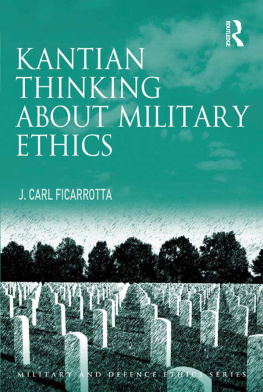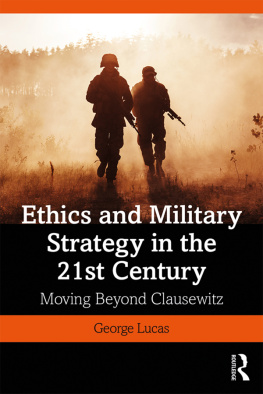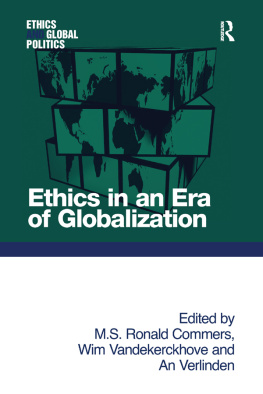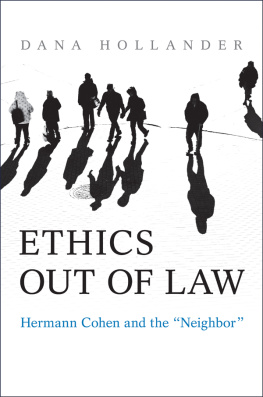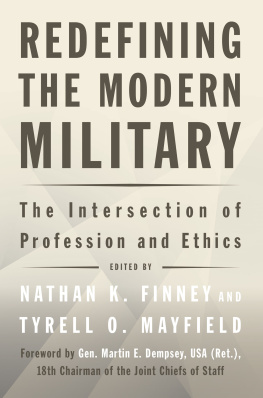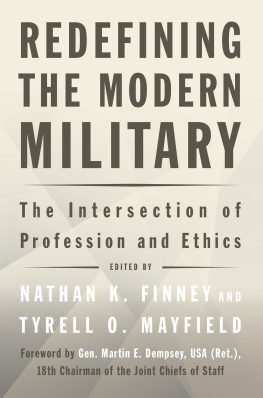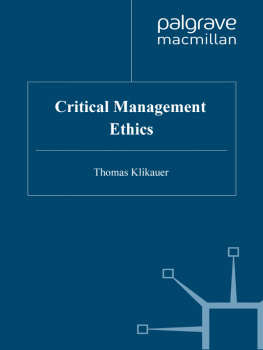KANTIAN THINKING ABOUT MILITARY ETHICS
Military and Defence Ethics
Series Editors
Don Carrick Project Director of the Military Ethics Education Network based in the Institute of Applied Ethics at the University of Hull.
James Connelly Professor of Politics and International Studies, Director of the Institute of Applied Ethics, and Project Leader of the Military Ethics Education Network at the University of Hull.
Paul Robinson Professor in Public and International Affairs at the University of Ottawa.
George Lucas Professor of Philosophy and Director of Navy and National Programs in the Stockdale Center for Ethical Leadership at the US Naval Academy, Annapolis MD, USA.
There is an urgent and growing need for all those involved in matters of national defence from policy makers to armaments manufacturers to members of the armed forces to behave, and to be seen to behave, ethically. The ethical dimensions of making decisions and taking action in the defence arena are the subject of intense and ongoing media interest and public scrutiny. It is vital that all those involved be given the benefit of the finest possible advice and support. Such advice is best sought from those who have great practical experience or theoretical wisdom (or both) in their particular field and publication of their work in this series will ensure that it is readily accessible to all who need it.
Also in the series
Empowering Our Military Conscience
Roger Wertheimer
ISBN: 978-0-7546-7894-6
Ethics Education for Irregular Warfare
Edited by Don Carrick, James Connelly and Paul Robinson
ISBN: 978-0-7546-7700-0
Kantian Thinking about Military Ethics
J. CARL FICARROTTA
United States Air Force Academy, USA
First published 2010 by Ashgate Publishing
Published 2016 by Routledge
2 Park Square, Milton Park, Abingdon, Oxon OX14 4RN
711 Third Avenue, New York, NY 10017, USA
Routledge is an imprint of the Taylor & Francis Group, an informa business
Copyright J. Carl Ficarrotta 2010
J. Carl Ficarrotta has asserted his right under the Copyright, Designs and Patents Act, 1988, to be identified as the author of this work.
The views or opinions expressed or implied in these chapters are the authors and are not to be construed as carrying the official sanction of the United States Air Force Academy, the Department of the Air Force or the United States Government.
All rights reserved. No part of this book may be reprinted or reproduced or utilised in any form or by any electronic, mechanical, or other means, now known or hereafter invented, including photocopying and recording, or in any information storage or retrieval system, without permission in writing from the publishers.
Notice:
Product or corporate names may be trademarks or registered trademarks, and are used only for identification and explanation without intent to infringe.
British Library Cataloguing in Publication Data
Ficarrotta, J. Carl, 1957-
Kantian thinking about military ethics. -- (Military and defence ethics)
1. Military ethics.
I. Title II. Series
172.42-dc22
Library of Congress Cataloging-in-Publication Data
Ficarrotta, J. Carl, 1957-
Kantian thinking about military ethics / by J. Carl Ficarrotta.
p. cm. -- (Military and defence ethics)
Includes bibliographical references and index.
ISBN 978-0-7546-7992-9 (hardback) -- ISBN 978-0-7546-9974-3 (ebook) 1. Military
ethics. 2. Kant, Immanuel, 1724-1804--Criticism and interpretation. I. Title.
U22.F53 2009
172.42--dc22
2009034586
ISBN: 978-0-754-67992-9 (hbk)
ISBN: 978-1-315-59089-9 (ebk)
Contents
Preface
Those of a certain age will remember Bertrand Russells Unpopular Essays, a delightful collection first published in 1950. In collecting my own work I was sorely tempted to riff on that title, but not because I think my essays are as good or as interesting as Russells (they are not). Nor are they on the same general topics (his are wide-ranging, while mine are meditations narrowly focused on military policy). Rather, I was thinking I might try to pay homage to an important public philosopher, whose writing I admire a great deal and count among my earliest philosophical influences and inspirations. Besides, Russell said in his preface that his essays were written at various times over the last fifteen yearsas I write this in 2009, mine too.
But here is the bit from Russells preface that most attracted me to the title. In an earlier book (Human Knowledge) Russell claimed he was not writing just for professional philosophers, because he thought philosophy properly dealt with matters of interest to the general educated public.
Reviewers took me to task, saying they found parts of the book difficult, and implying that my words were such as to mislead purchasers. I do not wish to expose myself again to this charge; I will therefore confess that there are several sentences in the present volume which some unusually stupid children of ten might find a little puzzling. On this ground I do not claim that the essays are popular; and if not popular, then unpopular (Russell, v).
I judge this to be both hilarious and a laudable way to settle on a title. I too am confident that the arguments in my own essays will require no special training in philosophy to followmostly I take myself to be engaging in garden-variety, easily accessible moral argumentation. Wherever I feel the need to appeal to philosophical notions or theoretical concepts, I have done my best to explain them in terms that anyone who holds membership in the general educated public should be able to grasp. But since I too might mislead a potential purchaser of this collection who has no patience for arguments, and since as it turns out most of my conclusions run contrary to generally accepted opinion on the questions I address, I thought I might follow Russells good example and call the collection Unpopular Essays in Military Ethics.
), I do think that ones commitments at the theoretical level can and often do cast a shadow into the formation and application of principles, policies, and character traits at the practical level. In other words, the theory one holds matters in the real world of making moral choices. These essays are for me the result of trying to take deeper-level Kantian commitments seriously. They are what happened as I worked on these practical problems, happily situated under the inspiring influence of that Kantian shadow.
Earlier versions of these chapters have appeared or been presented elsewhere:
), 1996; revised as A Higher Moral Standard for the Military in G. Lucas, editor, Ethics for Military Leaders, Fourth Edition, Pearson Publishing, 2001.
: Discrimination by Generality in Public Affairs Quarterly Volume 10, Number 3, July 1996.
: Careerism: A Moral Analysis in J. Galston and J. Hietala, editors, Ethics and National Defense: The Timeless Issues, National Defense University Press, Washington, DC, 1993.
, 2003, originally in Anglicans Online, Whats New This Week: Worth Noting (no longer available on-line).
: How to Teach a Bad Ethics Course in

